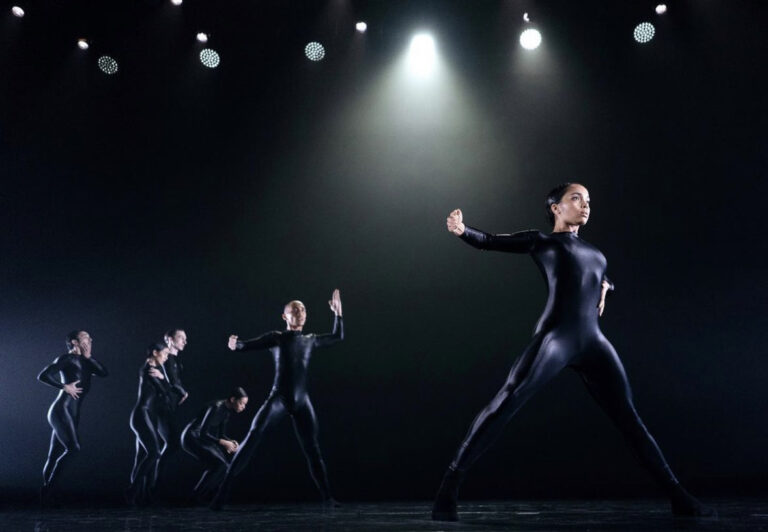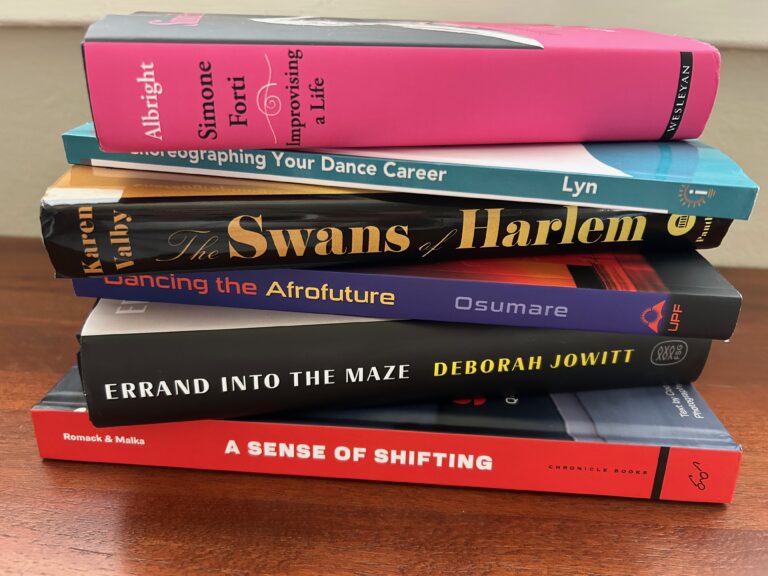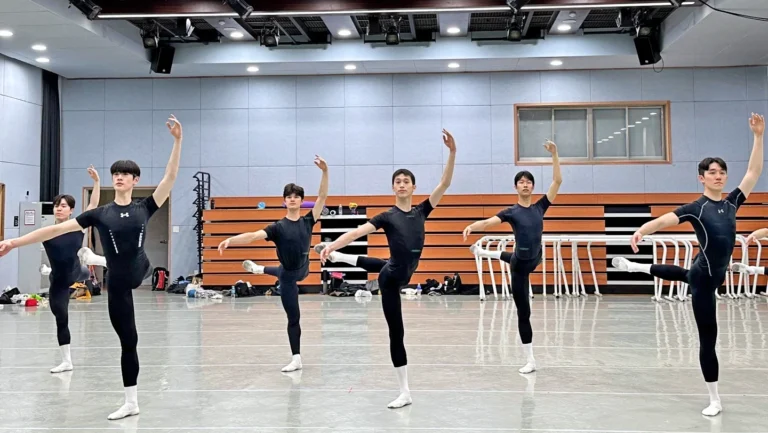
In 2018, Elwince Magbitang and Raye Vince Pelegrin became scholarship students at American Ballet Theatre’s Jacqueline Kennedy Onassis School. It was a monumental opportunity for the boys from the Philippines. Both 17 at the time, they had to move halfway across the world from their school, Steps Dance Studio in Manila, where they had been students since they were kids. Their teacher, Sofia Zobel Elizalde, founder and managing director of Steps, took it upon herself to “fill in the gaps,” as she calls it, helping them ease the transition to the Big Apple by assisting with their airfare, dorm room necessities and health insurance through the Steps Scholarship Foundation and personally helping them find locals and friends that could be their guardians during their time in New York and with whom they could spend their holidays during the school break.
“I treat these kids like my extended children,” says Elizalde over Zoom from Manila. “When Elwince and Vince were accepted at the JKO School, their dorm and tuition were paid for, but they needed to fix up a room. They needed bedsheets and towels and other things. What you can’t do is say ‘OK, go now to the U.S., and you’re on your own.’ No. How do they get there? Where do they get their food budget from? When there’s a school holiday, where do they go? There’s also the emotional side. They have to adapt to a new country and deal with being homesick. I really tried to help talk them through it and explain what to expect.”

Now her former students are budding stars at ABT in their own right—Magbitang is a corps de ballet member in the company and made his debut as lead gypsy in Don Quixote during ABT’s recent summer season at the Metropolitan Opera House. Pelegrin is a new member of ABT’s Studio Company.
Leaving the Philippines to pursue professional ballet studies while adjusting to a new culture abroad is an experience Elizalde is familiar with herself. Born and raised in the Philippines, Elizalde moved to the United Kingdom at 13 years old to study at the Elmhurst Ballet School. She went on to dance professionally for Ballet Philippines for eight years before marrying her husband, Patxi Elizalde, and starting a family. But because she didn’t want to completely leave dance behind, Elizalde founded Steps Dance Studio in 1994, where she was able to offer the Royal Academy of Dance (RAD) methodology based on the training she acquired during her time in the UK.
Now in its 28th year, Steps Dance Studio has a roster of 10 teachers, leading classes in classical ballet, modern, jazz, street dance and tap. About 25 of their 200 students are on scholarship. Pelegrin was a Steps Dance Studio Foundation scholar while Magbitang was a CENTEX scholar (Center of Excellence in Public Elementary Education). CENTEX provides free public education to gifted children from economically underprivileged families. Steps offers dance education at CENTEX public schools in Tondo, Manila, and, about a two-and-a-half-hour drive from Manila, Bauan, Batangas.
Another of Elizalde’s prominent alumni is Marcelino “McCoy” Libao, currently a soloist with the Leipzig Ballet in Germany and the first Filipino to compete in the acclaimed Prix de Lausanne. After competing at the Prix, he was offered a spot at the Hamburg Ballet School in Germany, arriving in the country at 15 years old without speaking a word of German (he is now fluent).
“It was a big cultural change,” recalls Libao. But his training at Steps and the guidance of Elizalde served him well. “It paid off because I would get feedback on things like how I could take a correction and quickly apply it; how to pay attention; and if I didn’t understand something, asking a teacher politely,” explains Libao. “That helped me a lot because I wasn’t afraid to speak up if I was confused or lost.”
It’s a quality Elizalde tries to instill in her students, particularly those who move abroad, since assertiveness is not a common trait in Filipino culture.
“Here in the Philippines, we tend to be a bit more restrained, very polite in the classroom,” says Elizalde. “You know, like ‘You go first, I’ll stand in the back.’ In the U.S. [for example], you can’t do that because it’s highly competitive. You need to be seen and put your best foot forward. Filipinos are not naturally that way. When you are too assertive in this country, you could be misconstrued as a show-off. So I had to teach my kids to adapt to where they are and to learn that quickly.”
Creating Well-Rounded Artists
Another thing Elizalde enforces in her school is diversity in curriculum. While the school trains in the RAD method, students are also introduced to Vaganova technique once they start to reach the intermediate level.

“When they’re young, we make them do everything to see where their strength is,” explains Elizalde. “If the student is more classically gifted, then I tell Angie [Cervantes, our operations manager], to give the student jazz once a week or contemporary twice a week, for example. If they are trained in everything, then they can take their dancing in many different directions.”
One such Steps alum was Monica Gana, a former dancer with Ballet Philippines who now dances with Alice Reyes Dance Philippines (ARDP). During her time at Steps, Gana studied ballet, contemporary and jazz.
“I was lucky to have teacher Jun Saagundo at Steps, since he made us do a lot of daring contemporary stuff like falling down to the floor on your knees or jumping into a forward roll, so when it came to doing some dances here at ARDP, it’s not like I had to be scared,” says Gana. “Jazz is also fun and sassy, which really helped with my character development.”
The diversity in training has led Steps alumni not only to renowned ballet companies worldwide, but to other career paths, as well, including Broadway productions, higher education and teaching. One alum, Regine Torres, was accepted into the competitive musical theater course at the Penn State School of Theatre.
Paying It Forward
In 2018, Stella Abrera, the first Filipino American principal dancer at ABT, collaborated with Elizalde on a gala in Manila to benefit CENTEX. (It also happened to be the gala where her husband, ABT Studio Company director Sascha Radetsky, discovered Magbitang and Pelegrin). Last spring, Steps opened the Stella Abrera Dance and Music Hall at the CENTEX Batangas school.

“We named the school after Stella because she has been a big inspiration to me personally,” says Elizalde. “She was a Filipina who grew up in the U.S. and became principal dancer at ABT. We’re very proud of that. She serves as an inspiration to all of these young children who have this dream.”
The feeling is mutual for Abrera.
“Sofia is such an inspiration to me—her passion and dedication is boundless,” says Abrera. “She is responsible for making countless dreams come true while giving children a well-rounded education. All children, no matter if they come from a big city or the most rural province, should have access to these experiences.”
No matter the path Steps students take, one common thread has been their desire to give back, perhaps a value Elizalde encouraged in them.
“As an artist, I feel there’s more than just dancing onstage, and that’s when I decided that every time I would go home to the Philippines, I would find ways to give back to the community,” says Libao.

That motivated Libao to create Stepping Forward, a project to support talented youth in the Philippines through the Steps Scholarship Foundation and Academy One’s Tuloy Foundation (another local dance school).
“I have yet to meet a Filipino who doesn’t want to give back,” says Elizalde. “Filipinos want to give back what they’ve learned abroad and bring it home. It’s a beautiful cycle.”





